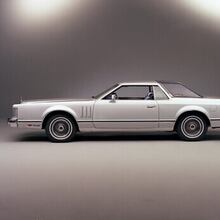Coca-Cola has been a key Olympics sponsor for nearly a century, and as the Beijing Games get underway, it typically would throw its massive global marketing muscle behind the sporting event.
But the beverage giant is taking a dramatically different approach this year as major U.S. sponsors face calls to speak out against China’s alleged human rights abuses in Xinjiang against Uighurs, a largely Muslim ethnic group.
Atlanta-based Coke sidestepped calls to speak out in the runup to the Games, fearful of angering China, home to about 1.4 billion drinkers, while reiterating that human rights is a “fundamental” company value.
The company also has dialed back its marketing efforts outside of China. In Atlanta, soda aisles in grocery stores are bereft of Olympics-themed displays. As the opening ceremony unfolded in Beijing on Friday, the main page of Coke’s U.S. consumer website made no mention of the Games.
Coke told The Atlanta Journal-Constitution it instead will “activate the Games through our local, on-the-ground team in China.” That includes Olympics-themed cans and branded displays.
As media consumption becomes more splintered, the Olympics are a rare opportunity for companies “to engage the whole world at the same time,” said Ken Bernhardt, a professor emeritus of marketing at Georgia State University. It’s also normally “a feel-good event.”
That became more complicated after the White House in December announced a U.S. diplomatic boycott of the Winter Games, although Team USA athletes are still competing. The White House cited China’s “egregious human rights abuses and atrocities in Xinjiang.” Some other countries followed with diplomatic boycotts.
China has denied the allegations, including forced labor, and says its crackdowns in the Xinjiang region of northwest China target religious extremism and terrorism.
Coke is “walking a tightrope,” said GSU marketing professor Naveen Donthu. The company is trying to make bigger inroads in China’s huge consumer market through its Games sponsorship, but when it comes to marketing, “they don’t want to go beyond China because that might hurt them.”
Credit: Kelly Yamanouchi
Credit: Kelly Yamanouchi
Coke has been sponsoring the Games since 1928. It agreed in 2019 to partner with China’s Mengniu Dairy Company as beverage co-sponsors of the International Olympic Committee. The marketing agreement lasts until 2032 and is worth as much as $3 billion, the Financial Times reported. Mengniu’s largest shareholder is Cofco, a Chinese state-owned company.
Coke said it will not send its executives to the Olympics in Beijing. It blamed “the recent surge of COVID cases as well as various business conflicts, including our earnings date.” It said it took a similar approach to Tokyo’s Summer Olympics last year, which had strict COVID protocols.
It’s not the first time the beverage behemoth has struggled to navigate politically explosive issues. Last year, some U.S. consumers threatened to boycott Coke products after the company didn’t condemn a new Georgia elections law that critics said made it harder to vote. When James Quincey, Coke’s chief executive, finally weighed in and called the legislation “unacceptable,” he drew the ire of Republicans, including state House Speaker David Ralston, who purposely opened a Pepsi in front of TV cameras.
If companies speak out against the Chinese government, they risk a boycott of their goods in China, which Nike and H&M faced last year after standing against forced labor in Xinjiang.
During a Congressional hearing last year, executives for Coke, Airbnb, Procter & Gamble, Visa and Intel were grilled over their International Olympic Committee sponsorships for the Beijing Games. Coke testified that it works “to embed respect for human rights across our system” and has limited influence as a sponsor of global sporting events. It scrupulously avoided criticizing China.
Other IOC sponsors including Procter & Gamble and Airbnb have also taken a lower profile advertising around the Beijing Games. Atlanta-based Delta Air Lines has a narrower sponsorship with Team USA and says its focus is on athletes.
A Morning Consult poll of more than 2,000 U.S. adults found interest in the Beijing Winter Games is lower than last year’s Tokyo Summer Games, which had the smallest average primetime television audience for an Olympics since at least 1988. Only 45% said they planned to watch “a lot” or “some” of this month’s Games, and 40% of those who didn’t plan to watch said they opposed holding the event in China, according to the poll, which was conducted in late January.
Coke “won’t get the bang for the buck” they normally do from their international IOC sponsorship, but “it’s a long-term deal, there are ups and downs,” said GSU’s Donthu.
Still, navigating politics and human rights has become more challenging as companies are increasingly scrutinized on social media by consumers, some of whom demand companies take stands in return for their loyalty.
“One of the biggest debates right now in corporate America is when should corporate America stand up for something and when should they take a backseat,” said Wesley Longhofer, associate professor of organization and management at Emory University. “This isn’t going to go away.”
About the Author





